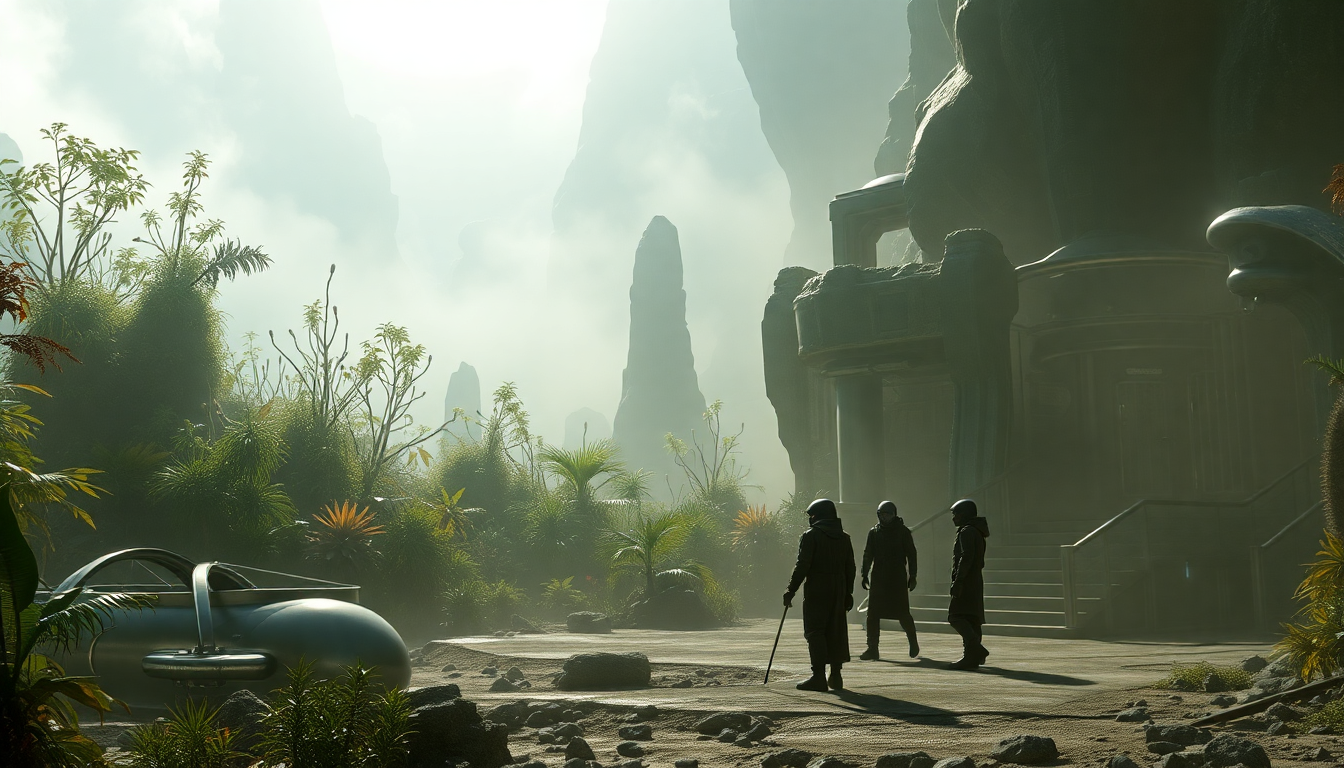Table of Contents
Get ready for a game-changer in sci-fi television! The upcoming FX series Alien: Earth is not just another show—it’s a bold step forward, blending the rich legacy of the iconic franchise with fresh, contemporary storytelling. Created by Noah Hawley, who has been dreaming up this project for nearly a decade, the series aims to breathe new life into the universe that Ridley Scott first introduced us to back in 1979. As we count down to the premiere, both fans and industry insiders are buzzing with excitement over how this ambitious adaptation will reshape the sci-fi narrative landscape on our screens.
The Creative Journey Behind Alien: Earth
So, how did Hawley bring Alien: Earth to life? It all started with a five-page proposal he submitted to FX eight years ago. Talk about vision! This early foresight not only showcases his passion for the franchise but also highlights his understanding of what today’s audiences crave. Known for his knack for crafting compelling narratives, Hawley has a proven track record of transforming established properties into exciting, engaging stories. If his past work is any indication, Alien: Earth is set to be a thrilling ride.
Industry insiders reveal that the series will stay true to many elements from Hawley’s original outline, ensuring that the essence of the Alien universe remains intact while still appealing to modern viewers. This careful balance of homage and innovation is crucial, especially given the franchise’s rich history and the high expectations surrounding it. In fact, FX’s investment in this project is substantial—rumor has it that the budget exceeds that of their previous most expensive series, showcasing the network’s confidence in Hawley’s vision.
Experts agree that Hawley’s approach isn’t just about riding the wave of an established brand; it’s about reimagining it with a fresh perspective. This respect for the original material, combined with a modern twist, is vital in today’s media landscape, where audiences are looking for more than just surface-level entertainment. They want depth, and Alien: Earth promises to deliver just that.
The Landscape of Comic-Con and Marvel’s Evolution
Meanwhile, at the San Diego Comic-Con—a cornerstone event for studios and networks—things are looking a little quieter this year, especially for Marvel. Kevin Feige, the studio’s chief, has openly addressed Marvel’s recent challenges, acknowledging the tricky balance between quantity and quality. Over the past six years, Marvel has ramped up its output, producing more than 120 hours of content, a stark contrast to the 50 hours created from 2008 to 2019. Can you believe the difference?
This rapid expansion has sparked concerns about brand dilution, something Feige himself has noted. The shift from crafting quality narratives to merely cranking out more content has raised serious questions about the future of Marvel’s cinematic universe. By skipping a major presentation at Comic-Con this year, the studio seems to be signaling a strategic shift as it reassesses its storytelling approach.
As the industry adapts to these significant changes, the ripple effects will be felt across various platforms. The evolving nature of content consumption means that studios like Marvel must refine their strategies to ensure they’re not just producing more content, but content that truly resonates with audiences.
Looking Ahead: The Future of Sci-Fi Television
The excitement surrounding Alien: Earth and the reflections on Marvel’s current direction underscore a larger trend in television: creativity is key. As networks and creators push boundaries within established franchises, the emphasis is likely to shift towards developing stories that are not only entertaining but also intellectually engaging. How cool is that?
For viewers, this means a future brimming with diverse storytelling that embraces complexity and depth. If Alien: Earth succeeds, it could pave the way for a new era of sci-fi television—one where adaptation and originality come together to create captivating experiences. The evolution of franchises like Alien reminds us that even the most iconic narratives can be revitalized through thoughtful, innovative storytelling.


